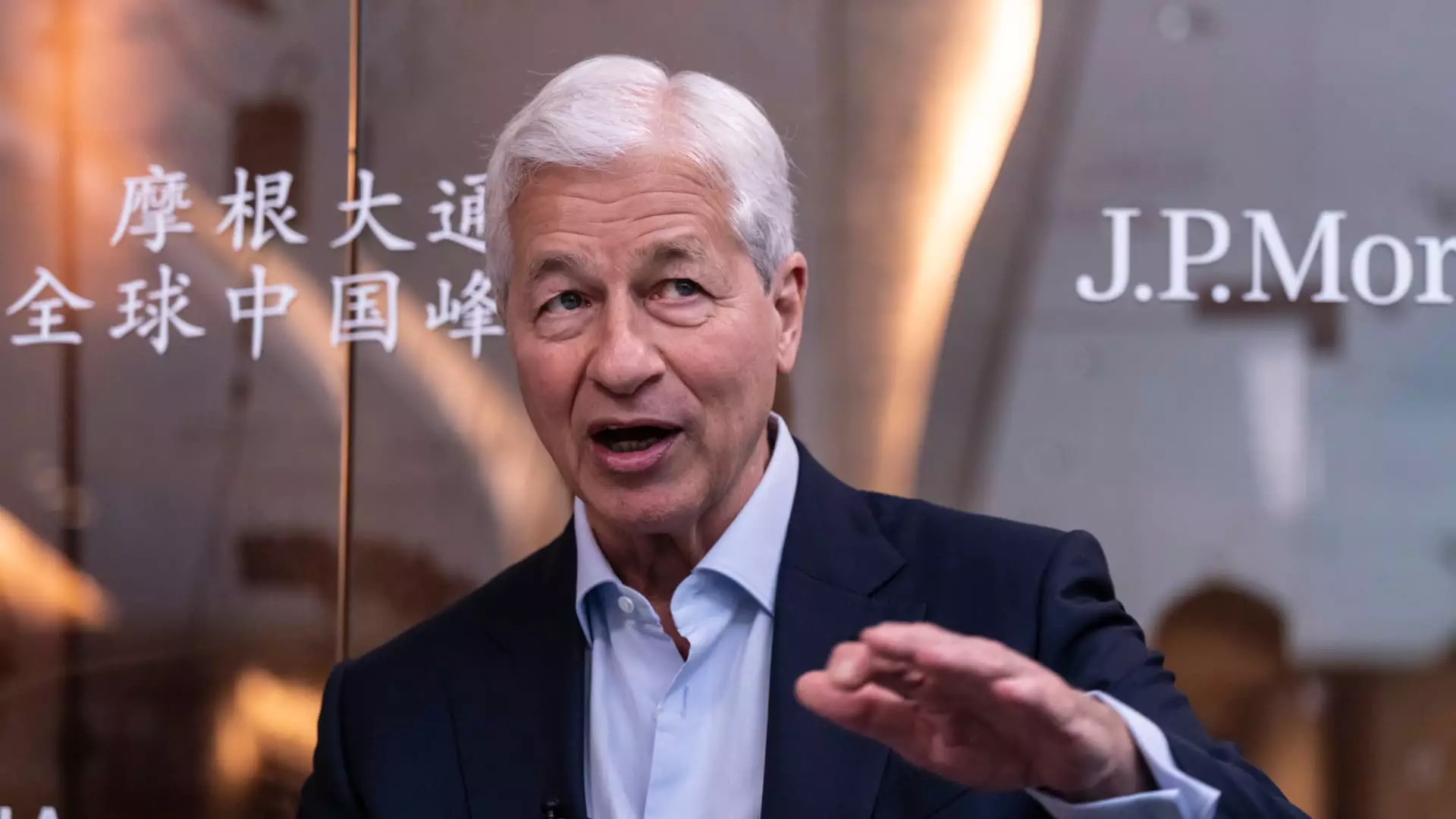In an era dominated by online investing, JPMorgan Chase, traditionally perceived as a banking behemoth focused on brick-and-mortar principles, is asserting its ambition to stand shoulder to shoulder with the titans of digital finance. Once trailing behind industry leaders, JPMorgan is now ready to unveil tools that could redefine the accessibility of fixed-income investing for everyday users. As reported by CNBC, the bank is set to introduce features that allow investors to research and procure bonds and brokered CDs conveniently through its mobile app. This advancement marks a strategic pivot for JPMorgan, aimed at appealing to a demographic that engages in trading on a sporadic basis.
Paul Vienick, head of online investing at JPMorgan Wealth Management, emphasizes the goal of simplifying the fixed-income purchasing experience, drawing from the successful framework established with equities and exchange-traded funds (ETFs). However, one cannot overlook the inherent irony; while JPMorgan brands itself as a leader, it has only recently amassed $100 billion in assets under management— a figure that dramatically pales in comparison to the giants like Schwab and Fidelity who have woven their legacy over decades.
An Unfavorable Comparison: The Battle for Market Share
In the competitive landscape of online investing, JPMorgan is relatively late to the game. Despite initiating its foray into this realm with the “You Invest” platform, the bank’s journey has been riddled with missteps and misjudgments. When initially launched in 2018, it was marketed aggressively, even featuring prominently at the U.S. Open. However, by 2021, the feedback was clear — the brand lacked traction and relevance among self-directed investors. CEO Jamie Dimon, known for his forthrightness, openly admitted that the offering left much to be desired, publicly stating, “We don’t even think it’s a very good product yet.” Such candid criticism could be seen as a blessing in disguise, spurring a gradual reassessment and renewal of the bank’s digital strategies.
The challenge for JPMorgan goes beyond technical functionality; it must cultivate trust and a strong connection with a new generation of investors who are increasingly skeptical of traditional banking institutions. These individuals gravitate toward platforms that not only offer robust functionality but also exude authenticity and camaraderie. The true question lies in whether JPMorgan can shed its legacy image and evolve into a trusted ally for modern investors navigating the complexities of digital finance.
Innovating for Tomorrow’s Investors
The banking giant’s recent appointment of Paul Vienick, a seasoned expert from firms like TD Ameritrade and Morgan Stanley, reflects a recognition that innovation must permeate its wealth management ethos. Vienick openly acknowledges the considerable catching up that must be done to appeal to a market dominated by millennial and Gen Z investors who prioritize convenience and digital sagacity. Both the acquisition of First Republic and the push to cater to affluent American households exemplify JPMorgan’s sizeable ambitions; however, they illuminate the stark contrast between its asset management capabilities and those of its more seasoned competitors.
JPMorgan is keen to lure affluent clients not just through traditional means but by enhancing its self-directed platforms. With incentives like cash bonuses for transferring investments, the bank is striving to create an ecosystem where clients can manage their finances seamlessly. By consolidating services, JPMorgan hopes to provide an enveloping financial picture for its users, enabling them to connect every aspect of their financial lives — a move that could potentially resonate strongly with a population increasingly yearning for integrated financial services.
The Climb to the Top: Uncertain But Necessary
As JPMorgan embarks on this ambitious journey, the landscape remains riddled with uncertainty. The bank’s efforts to engage an evolving class of investors hinge on the assumption that individuals are now more inclined to take control of their investment portfolios. The evidence points toward a demographic that values independence and flexibility, often opting for direct investments over mutual funds. This acknowledgment is both timely and strategic as the financial advisory industry is simultaneously witnessing a shift toward technology-driven solutions.
Despite its institutional advantages, from a vast branch network to a deep balance sheet, JPMorgan faces fierce competition. The legacy of Jamie Dimon’s leadership might inspire confidence in its ambitions, yet one must remain cautiously optimistic. Transforming the self-directed business into a trillion-dollar venture will require more than steadfast commitment; it necessitates a genuine cultural overhaul within the institution. To win over an increasingly discerning audience, JPMorgan Chase must embody the very principles of trust and innovation that define the modern investing experience. Only then can it hope to cement its reputation alongside the top-tier competitors of the digital finance arena.

Leave a Reply